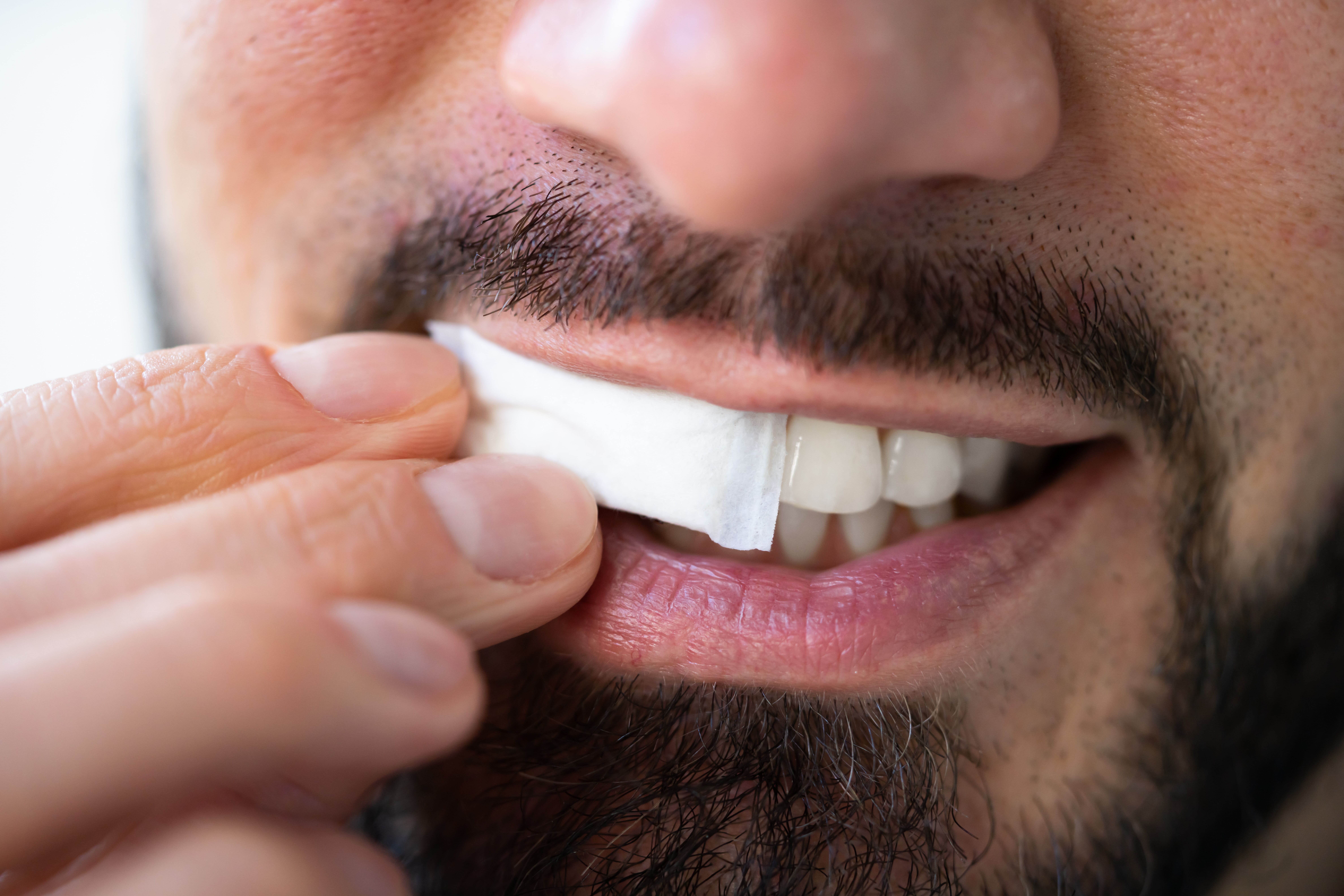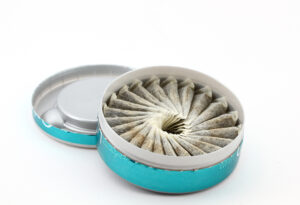
You may or may not have heard about a smokeless tobacco product named ‘Snus’ that has grown in popularity in the UK in recent years, or seen Premier League footballers using the stuff, and wondered why do footballers use snus? In this blog, we’re going to dive deep into what the product is and what it contains, discover its history, learn about its possible health implications and discover why premier league footballers are getting addicted to the stuff!
So, first things first…
What is Snus?
Originating in Scandinavia, Snus is a smokeless oral tobacco product. It’s a little bag of moist tobacco that is typically placed beneath the top lip, where it slowly releases nicotine. Snus differs from other tobacco products as you need to spit, not swallow when finished with it…
It’s a discreet and practical way of getting the experience of smoking but without the smell and the actual smoking part of course! Snus comes in a little tin that contains pouches that resemble teabags and are made up of a mixture of ground tobacco, water, salt, and flavourings, just try not to get them mixed up with your PG Tips… Unlike your morning brew, Snus gives a steady and controlled release of nicotine, making people get the same effects as when smoking tobacco.
Snus is unique in that it doesn’t emit any smoke, so there isn’t a cloud of candy-floss-flavoured smoke as there might be with a disposable vape (Link Vaping Blog when living). Snus is ingested without burning, unlike cigarettes or roll-ups, which eliminates the release of smoke and tar, which we can all agree is not pleasant!
Because of this, Snus is a well-liked option for people looking for a smokeless alternative to smoking that still satisfies their need for nicotine, so it’s not exactly going cold turkey.
The History of Snus
Snus’ origins are found in Scandinavia, primarily in Sweden. The product has a rich history steeped in tradition, with its creating dating back to the 18th century. Originally, people that carried Snus were people of aristocracy or of a higher social class.
Farmers started grinding their own tobacco from their own crops. They blended up it into a mush instead of snorting it, they would then leave it to ferment in jars. A part of the finished product was placed under the lip, and it was given the name “snus.”
Snus has quickly become ingrained into the culture of the Scandinavian countries, frequently been used as part of the celebrations of Midsummer.
Snus vs. Traditional Tobacco Products
Smoking poses significant health risks due to the combustion process, releasing harmful substances into the environment and directly into your body. These chemicals include tar, carbon monoxide, and carcinogens.
It increases the likelihood of developing lung cancer, respiratory diseases, and other tobacco-related illnesses. Smoking can also negatively impact oral health, contributing to dental problems, gum disease, and tooth loss, so if you smoke it’s not just your GP that would have an issue, your dentist won’t be happy either!
While snus carries fewer risks than smoking, it is not entirely risk-free, it might not be what you want to hear, but sadly it’s the truth. Snus eliminates the harmful effects of smoke inhalation, it still contains nicotine, which is highly addictive and excessive use of can lead to nicotine dependence.
While snus is generally considered less harmful to the lungs, studies suggest a potential link between long-term snus use and an increased risk of pancreatic and oral cancers. However, these risks appear to be considerably lower compared to smoking.
It is important to note that both smoking and snus usage carry health risks, and quitting all forms of tobacco and nicotine use is the best way to safeguard one’s health. Consulting with healthcare professionals and following evidence-based guidelines can help individuals make informed decisions about tobacco and nicotine consumption, luckily, you’re in the right place.
Health Implications and Studies
Scientific studies have consistently indicated that snus is a less harmful alternative to smoking, with reduced health risks associated with its use. Research findings demonstrate that snus users face significantly lower risks of developing lung cancer compared to smokers. Studies have also shown that snus usage is not associated with an elevated risk of respiratory diseases such as chronic obstructive pulmonary disease (COPD).
Snus has been found to have a minimal impact on oral health compared to smoking or other tobacco products. These results support the notion that snus can provide a harm reduction strategy for individuals seeking nicotine consumption while minimising the associated health hazards.
While snus is not entirely risk-free, the absence of smoke inhalation in its use contributes to its reduced health implications. These scientific findings play a vital role in informing public health discussions and recognizing the potential benefits of snus as a less harmful alternative to smoking.
What is Driving the Popularity of Snus in the UK?
Snus has gained popularity due to its convenient and discreet nature, making it a preferred choice for on-the-go nicotine consumption. The pre-packaged pouches offer a practical and hassle-free experience, requiring no additional equipment. Its discreet usage allows individuals to enjoy snus without drawing attention or disrupting their surroundings.
The absence of second-hand smoke associated with snus makes it more socially acceptable, appealing to individuals who prioritise considerate nicotine consumption. These factors contribute to the growing appeal of snus as a convenient and discreet alternative to smoking, aligning with the evolving preferences and lifestyle needs of nicotine users.
Snus Flavours
One of the unique selling points of Snus is that the product comes in a wide range of flavours, which is similar to its counterpart, vape pens. The most popular flavours include classic tobacco blends, fruit, mint, and coffee.
While having flavoured products is a smart move from the perspective of the manufactures, there is a debate around the ethical nature of making a product like this more appealing to a younger demographic. Unfortunately we think the same of the bubble gum vape you probably spend the whole day puffing on..
Why Do Footballers Use Snus?
Snus has recently risen to prominence amongst Premier League footballers, as the use of it has been spotted with players putting snus into their mouths while sat on the bench during matches being shown live on TV, as well as being spotted taking it in the back of various documentary series following major clubs. With the ability for fans to quickly share videos on social media, players usage of the tobacco product can no longer stay hidden from the public. But why do footballers use Snus? and is it harming them?
Performance Enhancement in Sports
As with any use of any performance enhancing substances that are legal, not all are considered legal or ethical within specific sports. There have been cases throughout sporting history of professionals doping, with the most famous being cyclist Lance Armstrong being banned from the sport in 2012 and having all his titles stripped for doping offences dating back to 1998.
Taking drugs or substances that can affect athletes’ ability to perform puts them at an unfair disadvantage, this is where the debate surrounding the use of Snus in Football and other sports starts to emerge. Often, issues that arise in sports are usually reflected in society, so it’s no surprise that the popularity of Snus is coinciding with society and professional sports, I mean your favourite footballer is a human too?!
So.. Should Snus be Banned in Sports?
Well, this is the latest discussion that has divided opinion amongst fans and sports science. Snus is technically illegal to buy or sell in the UK, but it is however, legal to consume. Which is the main argument for it being allowed within the professional sporting world.
Why do footballers use Snus? Although it doesn’t affect people’s fitness levels in the same way smoking tobacco does, the higher-strength Snus can heighten athletes’ concentration and performance levels which to some, is considered an advantage over their competitors.
Nicotine is currently on the World Anti-Doping Agency’s monitoring list, so it is not a drug that is considered cheating in sports, but the huge growth in popularity and therefore addiction of Snus may make this change in the future. Some sports clubs and associations have banned the use of Snus internally, as a means of protecting the health of their players.
Putting Our Health First
When considering using any substance, whether legal or illegal, it’s important that you are always informed of the impact what you are putting into your body, is having on your body. While the affects might be enjoyable in the now, the long-term impact of taking a product like Snus can be detrimental to your physical and mental well-being.
If you are concerned about your own use or someone you know use of Snus, then we’ve put together some useful links to organisations who offer valuable advice specifically for people who need it.
You’ll find the links at the bottom of the page!
Remember, e-Surgery offers a free to use ‘Ask a pharmacist’ service that puts you in direct contact with a medical professional all at the push of a button. If you’re worried or concerned about your health, you’re only minutes away from expert advice.










